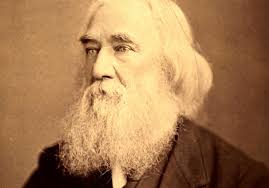Information Gatekeepers Make Our Culture Sick
Samuel Bryan • Apr 26 2016
The free flow of ideas is vital for a healthy, functioning society. When the flow of information is blocked in some way, culture atrophies.
Nina Paley is a cartoonist and filmmaker. Her TED talk on intellectual property vividly captures the importance of maintaining a free flow of information and ideas.
"We are information transmitters. Information enters through our senses, like our eyes and ears, and it exits through our expressions, like our voices, our writings, our drawings. And all of this information going through us creates a living phenomenon called culture. In order for culture to stay alive, we have to be open – transmitting and receiving information."
As Nina puts it, culture is a network and art is made up of the information we have received through culture: "It is through this flow that culture stays alive and we stay connected to each other."
Block the flow, and the culture becomes sick. We become disconnected. It is similar to the way clogged arteries leading to a heart attack. Clogging the free flow of information cripples culture.
Nina argues that current intellectual property laws serve as a roadblock to the free flow of ideas. People become so obsessed with what they can or cannot use that they end up self-censoring. The threat of "getting in trouble" dictates our choices about what we can express.
"Whenever we censor our expression, we close a little more, and information flows a little less. The less information flows, the more it stagnates. Evolution, innovation and progress stall. This is what we call permission culture."
Nina is talking about gatekeepers. They are primarily big corporations that dictate what information can flow to the public and what can't.
Nina produced a feature film titled Sita Sings the Blues. In the film, she used music from the 1920s by a singer named Annette Hanshaw. The songs should have been in the public domain years ago, but they weren't due to retroactive copyright extension. As Nina began navigating through the system trying to secure permission to use the music, she learned firsthand the power of the gatekeepers:
"They kept telling me, 'Yes It's annoying, but the same system is protecting your intellectual property' ... But found copyright holders weren't getting more money because of the copyright. What they were getting is the power to suppress art – to suppress communication."
Ultimately, the system doesn't benefit the artists, it doesn't benefit the actual art in question, and it doesn't benefit the public. It benefits the big corporations that hold the rights. As an artist, Nina experienced firsthand how the system blocks the free flow of ideas:
"What copyright was doing was blocking the circulation of my comics, which is probably why most of you haven't seen my comics."
LBRY seeks to open up the flow of information, to increase connectivity, and support a healthy culture. Through a decentralized platform like LBRY, creators can directly connect with their audience to eliminate the need for byzantine rights enforcement. Your payment goes right to the artist - not to the gatekeepers.
But would LBRY help Nina with her film? Well, she would still need to secure the rights to Annette Hanshaw's music, but that would be between her and the copyright holders. That reality still exists. But we envision a world without major media corporations – and their fat legal budgets. Most artists we know don't want to see their work put in a legal cage. They want to be part of the cultural conversation and receive fair compensation for their work. The reason they get stuck in severe copyright agreements is to access the distribution channels of a major record or production company. By creating a massive decentralized content marketplace, we render those companies obsolete. Poof!
